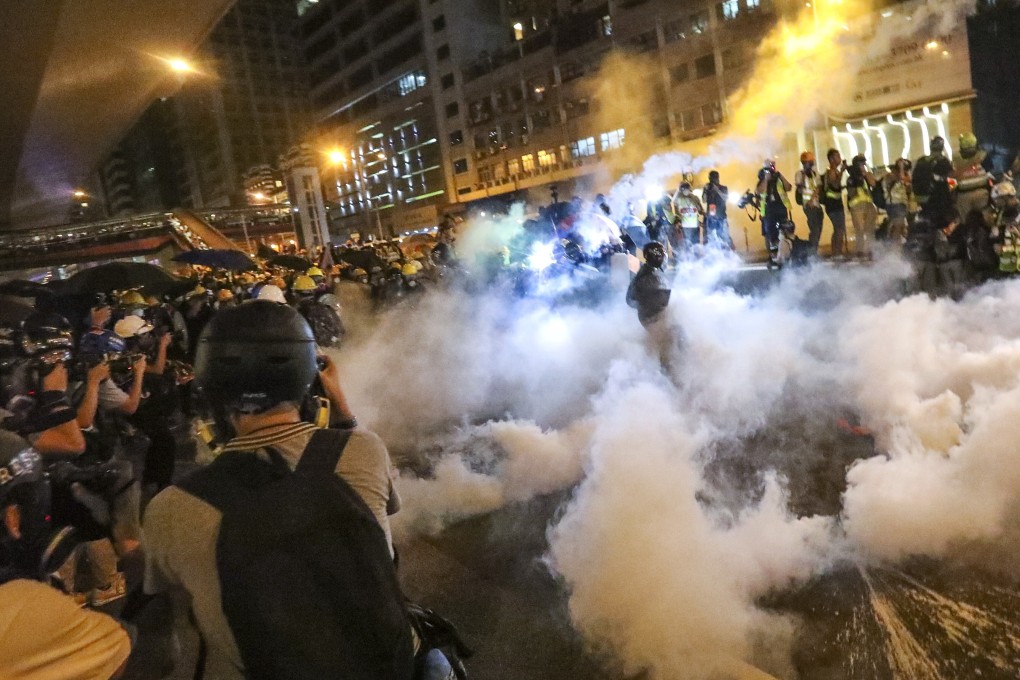Hong Kong police have 35 days to respond to legal action for the disclosure of ingredients in tear gas used in protests
- High Court says police must respond to opposition politician’s application for details on the tear gas they used in his constituency
- Ted Hui is planning to use the information to challenge the legality, reasonableness and proportionality of police use of the weapon

Hong Kong police have 35 days to respond to an opposition politician’s legal action for the disclosure of ingredients in the tear gas they used during the past year of anti-government protests.
Mr Justice Godfrey Lam Wan-ho of the High Court issued a deadline for the force to respond to Ted Hui Chi-fung’s application for details on the tear gas police used in his constituency in Central and Western district, where some of the most notable protests have taken place.
The information Hui sought included the tear gas ingredients, the chemical compounds emitted and details of the models used.
The lawmaker and district councillor is planning to use the information to mount a judicial review challenging the legality, reasonableness and proportionality of police deployment of tear gas, and help those who intend to seek claims over injuries caused by the weapon.
His hearing on Tuesday coincided with the first anniversary of a million-strong march against the now-withdrawn extradition bill. The campaign later snowballed into a year-long anti-government movement that extended to other issues such as police use of force and universal suffrage.
Latest figures showed police had fired 16,223 rounds of tear gas since the first march on June 9.